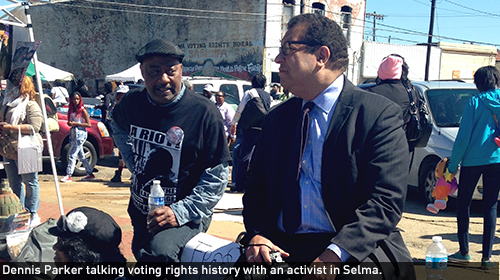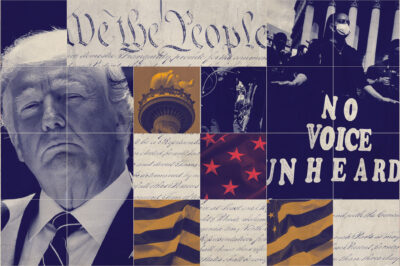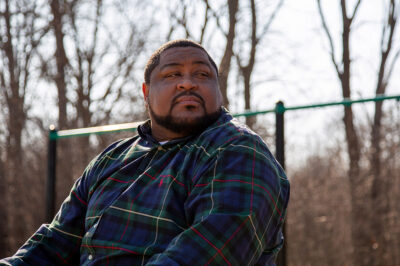
Even with a ticket, I was unable to get close enough to hear President Obama or see any of the other notable people speaking at the Pettus Bridge in Selma last Saturday. And I was not among those fortunate enough to find space in the historic Brown Memorial Chapel to hear Eric Holder or the host of other celebrated leaders crowding in to commemorate the anniversary of Bloody Sunday. The event was a magnet for the famous, but I managed not to spot a single celebrity in the two days I spent in the welcome warmth of Selma's crowded streets.
But I don't feel cheated at having missed the big names.
Instead, I was reminded about the real heroes of the civil rights movement who are too often unsung. I joined my colleagues from the ACLU giving out posters to marchers and had the honor of meeting an astonishing assortment of people from all over, including scores of students and faculty from Berea College, the Kentucky college founded audaciously as a coed, integrated college 10 years before the Civil War; members of NAACP chapters and church groups, black fraternities, sororities, and motorcycle clubs from all over the South and the nation; Latino farmworkers; Detroit union members; and people of all races who had placed their lives in danger by marching 50 years earlier and had returned to revisit the site. All of these people thronged the area around the site of the marches 50 years earlier. They came not to be a part of the carnival atmosphere that sometime prevailed or to be seen in a place that was fleetingly the center of the world's attention. Instead, they were there because they felt that they needed to be there.
Part of that need came from the desire to honor the courage and fortitude of the marchers 50 years before, who confronted unimaginable danger in order to force the nation to live up to the lofty ideals it espoused but continually and cynically denied to its people of color. But mostly, they came with a strong sense of continuing need. Despite the clear progress that had been made, almost to a person, the people we met voiced the recognition that the hard fought gains that were achieved had yet to reach everyone and were increasingly being subjected to attack.
They commented on the hypocrisy of local and state officials applauding the march while proposing and signing legislation that put more and more barriers in the path of people trying to exercise the right to vote. ACLU staff came prepared with 4,000 posters, worried that there would be insufficient demand and learned that they could easily have distributed four times that number to people drawn to the "Still Fighting for Voting Rights" message that appeared on the poster.
There has been too much bad news on the racial front over the past year. The recent report of the United States Justice Department confirmed what so many knew about Ferguson and cities all over the country, that bias is still deeply ingrained in American society. But any despair that I've felt recently was reduced immeasurably by the sight of so many everyday people dedicated to finishing the arduous job that the Selma marchers and other past heroes started so long ago.
Learn more about racial justice and other civil liberty issues: Sign up for breaking news alerts, follow us on Twitter, and like us on Facebook.




